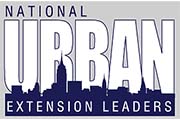Tagged With "Niagara Falls"
File
2019 Accomplishments
Blog Post
USDA presents: Equity in Conservation Outreach Cooperative Agreements
Natural Resources Conservation Service (NCRS) has created an outreach opportunity in collaboration with partners to expand conservation assistance to historically underserved producers and underserved communities and to provide opportunities for students to pursue careers in agriculture, natural resources, and related sciences. The following is a list of priority areas that NRCS will consider. Addressing local natural resource issues, promoting potential conservation career opportunities,...
Blog Post
Urban Food Systems Masters & Graduate Certificate Program
As of this fall, Kansas State University is excited to offer an Interdisciplinary Graduate Certificate in Urban Food Systems , as well as our professional track Masters of Science in Horticulture with an emphasis in Urban Food Systems - both of which can be completed fully online or in-person at our Olathe & Manhattan, KS campuses. We have rolling admissions for domestic students and NO out of state tuition fees through our Olathe or Global campus. This is a great graduate program for...
Blog Post
New SARE Bulletin: Best Practices for the Sustainable Urban Farm
For decades, urban farms and community gardens have helped meet demand for fresh and local produce. Urban farming creatively utilizes limited space, conserves land and transforms vacant lots or buildings into productive greenspaces. Farming in cities can be a rewarding way for communities to grow healthy food while receiving a wide range of other interrelated environmental, economic and social benefits. SARE Outreach’s newest bulletin, Best Practices for the Sustainable Urban Farm , outlines...
Blog Post
News from NUEL Northeast Region
The NUEL Northeast Region begins 2024 with the year's first Regionwide Meeting on Thursday, February 15, 2024 (1:00pm - 2:30pm). Our work this year will focus on providing support for ongoing Extension collaborations across the Northeast, from West Virginia to Maine. Our mission emphasizes innovative Extension programming, and professional development options to meet the local needs of our diverse region. We invite colleagues from the Northeast Region to join our Steering Committee. For more...
Blog Post
Help Increase Visibility of Urban Extension Programs
Urban Extension colleagues, help spread the word, see our Survey!
Blog Post
🌍 Join the Change for a Sustainable Future! 🌿
Are you passionate about making a difference? Dive into the United Nations Sustainable Development Goals (SDGs) with our engaging speaker series this fall! Learn how to contribute to ensuring sustainable consumption, promoting health and well-being, securing water access, and providing sustainable energy for all. Upcoming Sessions: Sept 18: SDG #12 - Sustainable Consumption & Production Oct 2: SDG #3 - Health & Well-being Oct 16: SDG #6 - Water & Sanitation Oct 30: SDG #7 -...
